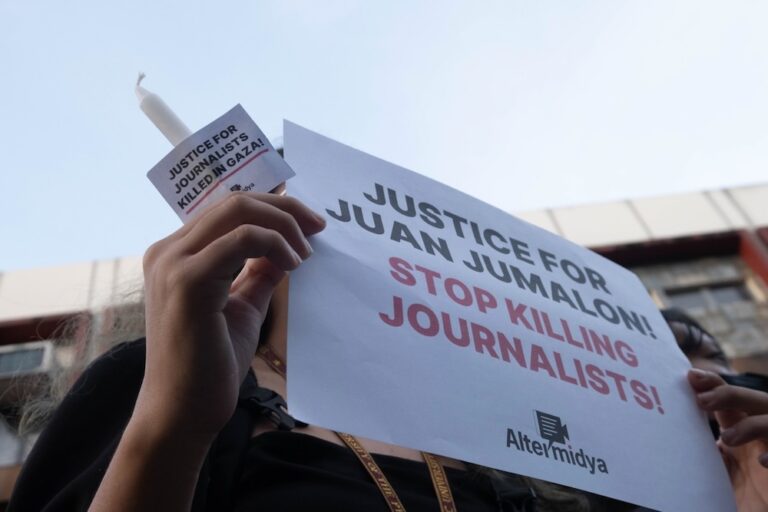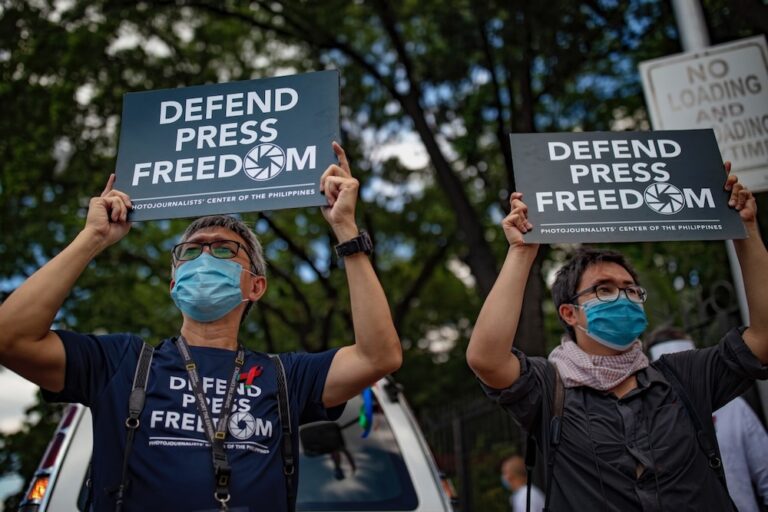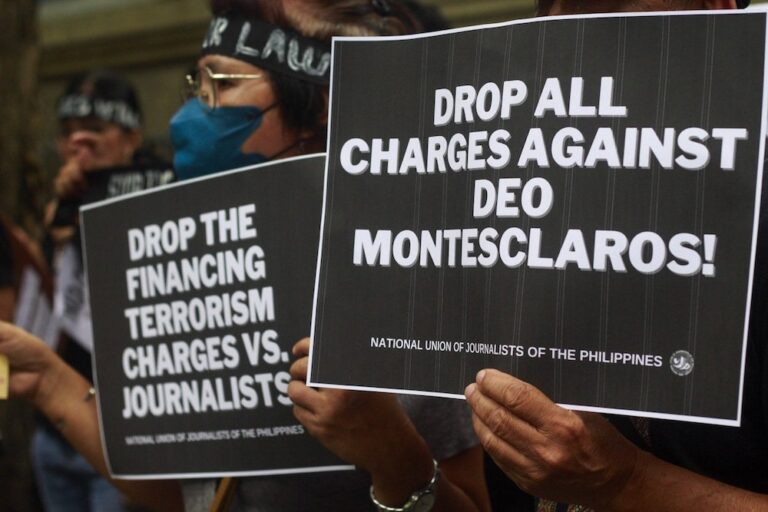(CMFR/IFEX) – An Oriental Mindoro-based journalist filed a petition for a writ of amparo before the Supreme Court on 4 February 2008 after discovering a plan to kill him, allegedly by people involved in anomalies he had exposed. Oriental Mindoro is about 140 km south of Manila. Nilo Baculo Sr., publisher and writer for the […]
(CMFR/IFEX) – An Oriental Mindoro-based journalist filed a petition for a writ of amparo before the Supreme Court on 4 February 2008 after discovering a plan to kill him, allegedly by people involved in anomalies he had exposed. Oriental Mindoro is about 140 km south of Manila.
Nilo Baculo Sr., publisher and writer for the community newsletter “Traveler’s News”, asked the high court to issue him a “temporary protection order” under Section 14 of the Rule on the Writ of Amparo. A “temporary protection order” provides the petitioners protection by “a government agency or by an accredited person or private institution capable of keeping and securing their safety.”
Baculo was assisted by the Roque and Butuyan Law Offices.
This is the first time that a provincial journalist in danger has petitioned the high court for a writ of amparo. Out of the 70 journalists and media practitioners killed in the line of duty since 1986, 67 were from the provinces.
A writ of amparo is “a remedy available to any person whose right to life, liberty and security is violated or threatened with violation by an unlawful act or omission of a public official or employee, or of a private individual or entity.”
The implementing guidelines for the writ were issued by the Supreme Court on 25 September 2007, in light of the tide of extrajudicial killings and enforced disappearances that continues to besiege the Philippines. The measure took effect on 24 October 2007.
Baculo found out on 16 December 2007 about the attempt on his life after the would-be assassin approached and informed him that a group of people wanted him dead due to his exposés. He has been in hiding since then.
The hired hitman was Baculo’s acquaintance and backed out of the deal after knowing that it was the journalist he had been hired to kill.
The hitman, claimed Baculo, told him that he was hired to kill the journalist by local businessman Wilfredo Caballero, Calapan City Administrator Antonio Perez and Councillor Allan Mañibo. The three allegedly got in touch with the hitman through Maximo Evora, a retired provincial warden. Calapan City is the capital of Oriental Mindoro.
All four of those connected to the alleged plot are respondents in Baculo’s petition. Other respondents are local government officials from the city administration and elected officials implicated in Baculo’s exposés.
In his complaint, Baculo stated that he found himself a: “target of malicious and baseless criminal accusations” such as attempted rape, extortion, and involvement with the armed communist group, the New People’s Army. He was jailed because of some of the accusations and managed to be released after his friends raised bail amounting to P 300,000 (approx. US$7,430).
Baculo hosted a public affairs programme, “Isumbong Mo Kay Ka Nilo” (Tell it to Nilo), on Radio dwIM Calapan City from 1995 to 2001. He transferred to dwAW Batangas in 2002. Baculo also published the weekly “Traveler’s News”, where he had a column under the same name as his radio show. He also served as the business manager of the “Pacific Review”, a Batangas City-based publication.
On his former radio programme, Baculo aired critical stories on alleged anomalies and crimes involving local government officials and prominent businessmen. He also filed numerous administrative cases and criminal charges for the illegal activities he claimed to have uncovered.
In one of his exposés, Baculo revealed the alleged misuse of funds at a privately-owned telephone company, Calapan Telephone Systems Inc. (CATSI) in Oriental Mindoro, by its majority stockholders, who include Caballero and his wife.
CATSI’s minority shareholders used Baculo’s findings in a case they filed against the majority stockholders. He said this is one of the reasons why Caballero’s group wants him dead.
Lawyer Harry Roque, Baculo’s counsel, said in a statement that they “hope that by resorting to the writ of amparo, Nilo Baculo and others similarly situated will finally have a legal recourse to prevent their inclusion in the growing list of victims of impunity in the Philippines.”


